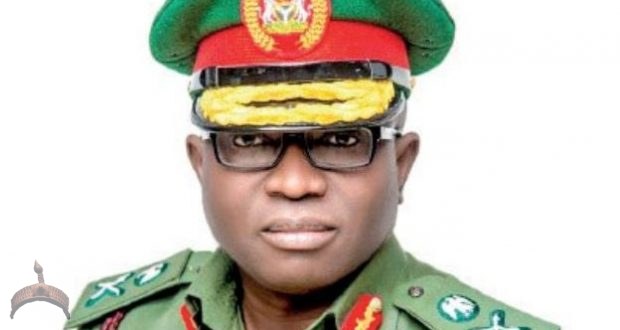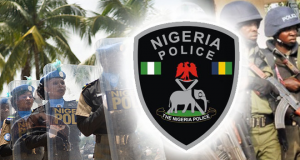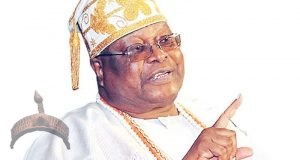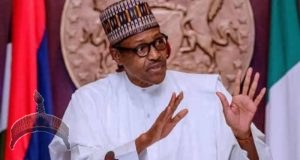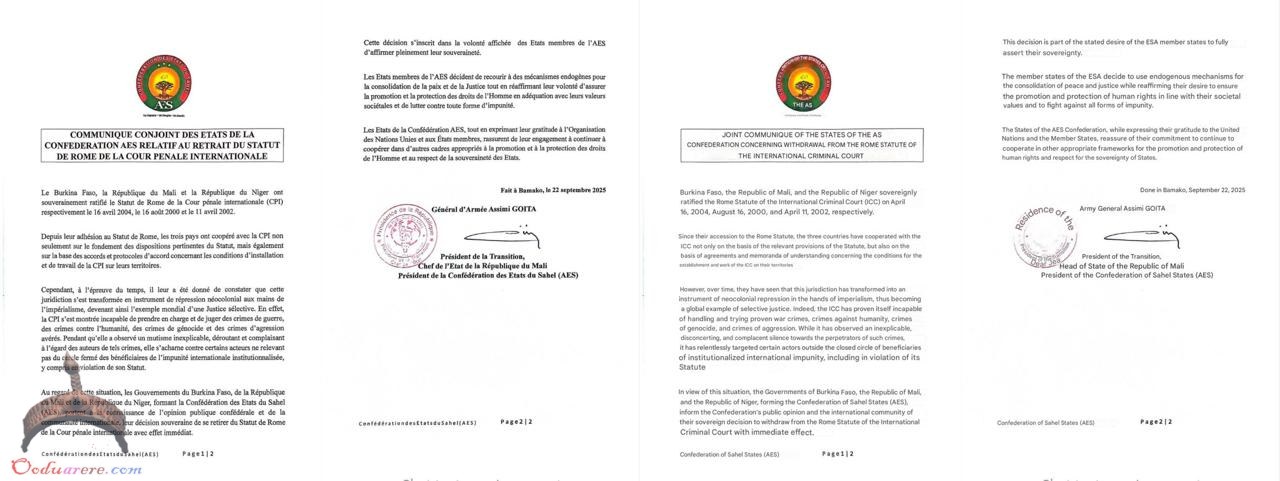Major General Bamidele Shafa is the Coordinator of Operation Safe Corridor, saddled with the responsibility of deradicalisation and reintegration of repentant Boko Haram members into the society. In this interview with MOLLY KILETE in Abuja, Gen. Shafa defended the federal government’s policy of rehabilitating insurgents who voluntarily surrender their arms and renounce terrorism. He equally added that, against popular belief, some Christians are also members of the terror gang.
Many Nigerians see Operation Safe Corridor as political especially when the beneficiaries are people that had killed innocent citizens. How do you respond to that?
Let me quickly correct one impression, Operation Safe Corridor is not conferring amnesty on anybody. We need to get that correctly. Now I know the feelings out there; people who have committed heinous crimes, people who have killed people, people who have destroyed government properties and what have you. But you see, we need to understand that not all members of Boko Haram or ISWAP as the case may be are hardened, not all of them are core ideologists of these groups. A number of them, in fact a large number of the foot soldiers of these groups are people who were conscripted, they are people who were coerced against their will. There are people who joined these groups for the sake of their personal survival and the survival of their parents and their siblings. And these groups of people are waiting for opportunities; they are waiting for any avenue for them to come out. And that is exactly what Operation Safe Corridor has provided for them. So I understand the feelings of Nigerians. But you see we need to be ingenious in dealing with this menace that has been with us since 2003. And that is the reason why the president and commander in chief has set up this programme to bring out these people who actually formed the bulk of Boko Haram. And like I have said in different fora, since we started this programme, a large number of foot soldiers of Boko Haram, ISWAP have actually come out to embrace the programme, embrace peace and we are doing well with them.
How difficult is the task?
Well, it’s being a very big task but I must say that God has been with me, God has been with my team and I must also say that the chairman operation safe corridor who is the CDS, has been very fatherly, very encouraging and supportive. He has given me every guidance and support that I require with my team to succeed. The other members of Operation Safe Corridor have also been very supportive in everywhere that we have met them and brought in concerns to them, they have addressed these concerns. So this has made the job a little bit easier. But I can tell you it’s a great challenge. Don’t forget it is the first of its kind so you need a lot of convincing work to do, to carry people along. Then another thing is that I have very committed staff, highly committed staff. My camp commandant, and the staff of the camp are highly committed. They believe in it. They believe in the ideals, they key into the vision of the president and that makes the job very easy for us. Then our partners, local and international have also been very wonderful, they have been very supportive and they have also made the job a little bit easier for us. But I can tell you that it is a huge challenge for us but God has helped us thus far.
What are the challenges you are facing?
The greatest challenge is about this perception, that is, government giving succour to perpetrators and leaving the victims. And that is not correct. The government is also doing a lot for the victims. Don’t forget that the Northeast Development Commission has been established even before then there was presidential committee on northeast initiative, there was Victims Support Fund. All these were established by the government to address the problem in the north east. So Operation Safe Corridor is only complementing those efforts and to address the issue of these boys who themselves are victims of circumstance, we need to help them. They need help, so we need to help them. We are creating alternatives for them. They are learning work in the camp, majority of them cannot read and write but we are teaching them in the camp. We introduce them to western education, formal education. I can tell you that by the time these boys are leaving the camp, they can read and write. They read simple English, they write simple English. As a matter of fact, the CDS has just authorized an education officer to be posted to the camp to actually come out with a robust curriculum so that they go through a robust curriculum of formal education and write exams and sit for certificate of literacy examinations, so that when they are leaving the camp, they have something if they want to further their education and what have you. One of our partners has also agreed to build set of classrooms for this programme. In addition to that, the CDS, has also authorized what we call counter narrative package, three weeks loaded, where we bring consortium of clerics from north east, headed by the Chief Imam of the Nigerian Army and the Chaplains of the Catholic and the Protestants to go there and engage these boys, engage them to diffuse their minds of the negative ideologies that the Boko Haram has put in them. They just finished last week. You needed to listen to the testimonies of the group. It was wonderful. That session was wonderful and in another one month, they are returning back to Gombe to engage them further before they graduate.
That means it is not only Muslims that are Boko Haram members since the CDS deployed the army chief imam and the chaplains?
Yes, there are a few of them that, very few of them who are not Muslims and that is why I said these are people that need to be helped. They had to go for their survival.
Is this programme similar to amnesty granted Niger Delta militants?
Well, I think there is big difference in the sense that what we are doing here is that we put the boys together, we take them through a structured therapy, psycho-social, psycho-spiritual counseling, we take them through vocational training, we take them through western education, we take them through recreational education and we also take them through drug abuse intervention under supervision. I am not aware that such thing happened with the Niger Delta militants, I am not aware. So that makes the difference.
How many have you rehabilitated so far and what has been their attitude after?
Successfully, we have rehabilitated 280 in Gombe and then we also through UNICEF, and Borno State ministry of women affairs rehabilitated 86 minors. These minors, their parents have all been traced and identified and just last week, UNICEF and Borno State government successfully transferred them to their parents through their local government authorities and traditional institutions. So if you put that together 280, and 86, will give you over 300.
So how many more are awaiting reintegration?
As at today, I have 606, adults in Gombe. Amongst these 606; 14 are foreign nationals and then we have 592, that are Nigerians. Hopefully, by God’s grace, by end of June, we should be graduating and transferring them to their states for reintegration.
Are they on any monthly salary like the Niger Delta militants and how much?
Well, what we do for them in Operation Safe Corridor is that we give them starter packs and we give them stipend. I am not aware may be the state government is giving them monthly salary, I am not aware. But operation safe corridor only gives them starter packs, we give them disposable things that they will go with, we sew clothes for them and we get NEMA to issue them food and non food items that would last them for six months. Other than that, nothing.
Have you any regrets doing this job?
No regrets. No regrets at all. Don’t forget I am a General in the Nigerian Army and I have sworn oath of allegiance to perform whatever duties assigned to me. So I see this as a great opportunity for me to serve my country and the experiences that I am bringing to bear in my country today in Nigeria are things that I brought as a young officer in Liberia and Sierra Leone. I was very much involved in the peace process in these two countries. So I gathered a lot of experiences and I felt that my government has given me this task, I should bring those experiences to bear. Also various courses that I have attended; I have read a lot about this subject and I am bringing everything to bear. So no regrets, it’s an opportunity to serve especially at my rank, my experience as a major general.
What is the saddest story you ever heard from the boys?
Let me answer this question by telling you a short story of one of the boys who have been with us in the camp. He is about 17 years old or thereabout now. He was conscripted when he was 8 years old. So that means he has spent about nine or ten years with Boko Haram. That’s a future destroyed if we do not quickly handle him. That’s one. The other study is that there is a man, an elderly man and his son that are with us at the camp. Boko Haram was to conscript the boy and the father refused. So they said it is either we kill you and take your son or we kill your son and take you. The fatter said you can’t kill my son, you can’t kill me. For you to kill my son, my son and I will follow you because I want to see where you are taking my son to. And that old man and his son have been with them until there was an opportunity for them to come out and they are with us in the camp and so many other stories. Some of them were going to school and may be they take advantage of the military patrol along the road provided for them to go to school and on the day that there was no such escort, the terrorists see them as informants to security, they abducted all of them and conscripted them to start fighting for them. There are so many sad stories, plenty.
Did they tell you about their operations during your interaction with them?
The stories are many, different experiences. Some of them will tell you even how they helped Boko Haram to carry guns, some of them will tell you how they participated in fighting in some places, but pathetic experiences because they were just between life and death. These are the ones that were able to survive these attacks. There is a boy in the camp that his leg and arm were blown off because of fighting. We have to get NEDC to buy him a wheelchair because until we got that wheelchair for him it was his colleagues that used to carry him on their back. He can’t walk. One leg, one arm chopped off, it’s very bad.
What was your saddest day in the camp as coordinator?
My saddest day in the camp was the day we brought in the first set of boys and they narrated to me their experiences and I saw that these are young boys, these are future leaders, future generations that would mold our country but the menace of Boko Haram has turned to something else. So it was very pathetic. I could not believe it but what would I do? Since the opportunity has come for me to contribute to turning them to better persons, I now took that as a challenge.
What is your advice to Nigerians criticizing the programme?
My advice to Nigerians is that they should have an open mind towards the programme because it is a good initiative. Other countries in the world are embracing it, so we too should embrace it so that we can see to the end of this crisis in the northeast and we will start enjoying the peace that Nigeria is known for.
 Ọmọ Oòduà Naija Gist | News From Nigeria | Entertainment gist Nigeria|Networking|News.. Visit for Nigeria breaking news , Nigerian Movies , Naija music , Jobs In Nigeria , Naija News , Nollywood, Gist and more
Ọmọ Oòduà Naija Gist | News From Nigeria | Entertainment gist Nigeria|Networking|News.. Visit for Nigeria breaking news , Nigerian Movies , Naija music , Jobs In Nigeria , Naija News , Nollywood, Gist and more

